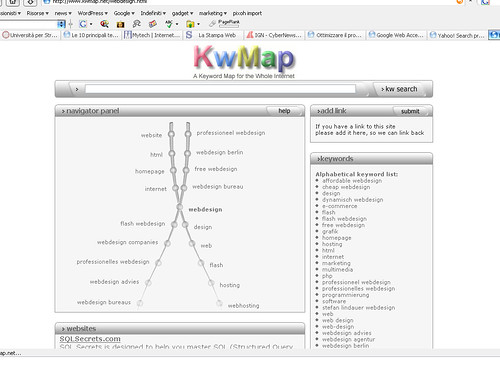All website owners desire to be successful. Hopefully you can now use what you know about SEO to help you get to where you need to be within search engines. This success will not come overnight, or without the right information. This article has wonderful SEO advice.
Pay-per-click strategies can be great ways to practice affiliate marketing. This service is the most common, and the pay is fairly low, but it can build up quickly.
Pick a domain name that is full of your chosen keywords. This will draw visitors who are truly interested in your site’s content. Ads do not give you all of your visitors; some visitors get to your site by looking for products that you might have.
Choose an SEO oriented style over an AP style to improve your site’s search engine positioning. In other words, use the keywords as often as you can without ruining the readability of the article. Since the search engines rank pages based in part on the density of various keywords, this will help boost your rankings.
To hide something, create a robots. txt file that gets added into your own root directory. This will prevent the search engines from getting to certain files that are on your website.
Site Map
Meta tags are an important tool for search engine optimization. Description tags have great value and they will be utilized in SEO. Make your meta tag information concise and meaningful. This type of tag usage will help to draw in more visitors to your site.
Include a site map to optimize your search results. This will make it easier for spiders to crawl on your site. A significantly large website might require more than one site map. Each map should not exceed 100 links in size.
Once you decide on your keyword or key phrase, include it in the title of your webpage. Your title should be attention-grabbing and relevant to your content, in addition to containing keywords, since it’s the first thing a visitor will see when deciding whether to visit your site. This will help your site get clicked since it will fit searches better.
Create descriptive, short title tags to make it easier for search engines to understand and index your page’s content. When making title tags, keep the character count under 60. Most search engines don’t display anything past that number. The search engines will also give much less weight to any terms after the 60 characters.
A site map which has your keywords included should be created. A site map functions to show users all the areas that are available to them on your site, and provides them with an easy way to find whatever they are searching for. Search engines use them in order to put websites in a higher position on the search lists, because the ease of access is an important facet in their ratings.
Each page should revolve around a specific subject. Don’t throw all your eggs into one basket. This practice confuses customers, and as a result, they won’t return. Focus on one product per page.
Site Map
Site maps help search engines catalog your pages more effectively. A site map (navigation bar) provides directions to content on your whole site. An XML site map will help search engine spiders review your content quickly, thus raising your ranking.
Look into using online ads. DIY SEO does not always produce the jump in rankings you want. You will get the traffic you want by using these ads. Using a product by Google can actually help your site’s rankings.
Search engine optimization may seem like it is hard. A multitude of options exist that can boost the rankings of any site. These tips will help you to get started and will help improve your page.
